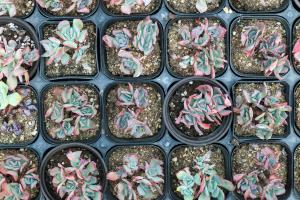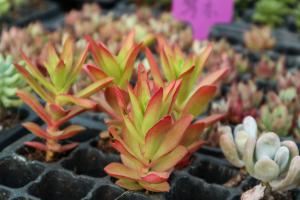A Medicinal Plant
Medicinal plants have been used for centuries to treat various ailments and promote overall health. One such plant is the ginkgo biloba tree.
Introduction to Ginkgo Biloba
Ginkgo biloba, also known as the maidenhair tree, is a deciduous tree with distinctive fan-shaped leaves that has been used as a medicinal plant for centuries. The tree is native to China and has been cultivated in other parts of the world, including Japan, Korea, and the United States. The leaves of the ginkgo biloba tree contain compounds called flavonoids and terpenoids, which have been shown to have antioxidant and anti-inflammatory properties.
Health Benefits of Ginkgo Biloba
Ginkgo biloba is commonly used to improve cognitive function, particularly in people with dementia and Alzheimer's disease. Studies have shown that ginkgo biloba may help improve memory, attention, and overall cognitive performance in these populations. Additionally, ginkgo biloba has been shown to improve blood flow and decrease inflammation, making it a potential treatment for conditions such as peripheral artery disease and chronic venous insufficiency.
Another potential use of ginkgo biloba is in the treatment of anxiety and depression. Some early studies have suggested that ginkgo biloba may be as effective as antidepressant medications in treating depression, though more research is needed to confirm this. Ginkgo biloba may also help reduce symptoms of anxiety and improve overall mood.
Side Effects and Precautions
While ginkgo biloba is generally considered safe when used in appropriate amounts, there are some potential side effects and precautions to be aware of. Some people may experience mild side effects such as headache, dizziness, and gastrointestinal upset. Additionally, ginkgo biloba can interact with certain medications, including blood thinners and antidepressants, so it's important to talk to your healthcare provider before taking ginkgo biloba if you are currently taking any medications.
Conclusion
Ginkgo biloba is a medicinal plant with a long history of use in traditional medicine. Its leaves contain compounds that may have health benefits, particularly in the areas of cognitive function, blood flow, and mood. While there are some potential side effects and precautions to be aware of, ginkgo biloba can be a safe and effective addition to a health and wellness routine when used appropriately.

 how many times do yo...
how many times do yo... how many planted tre...
how many planted tre... how many pine trees ...
how many pine trees ... how many pecan trees...
how many pecan trees... how many plants comp...
how many plants comp... how many plants can ...
how many plants can ... how many plants and ...
how many plants and ... how many pepper plan...
how many pepper plan...
































